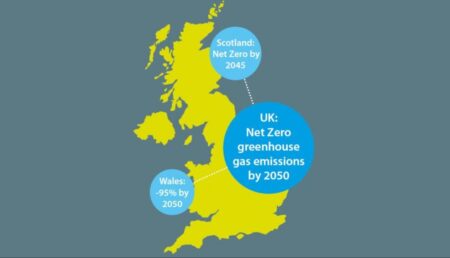France and Spain have joined forces with a coalition of countries to introduce taxes targeting premium flyers and private jet owners, making bold moves to slash carbon emissions and promote sustainable air travel, Reuters reports
Browsing: environmental policy
Calls are intensifying for a swift investigation into the lobbying activities of a prominent fracking advocate tied to a major gas company, raising urgent questions about transparency and potential conflicts of interest
Italy and Germany have hit the pause button on vital EU green deal legislation aimed at sparking revolutionary biotechnology innovation, igniting economic and regulatory concerns. This move risks derailing the EU’s bold climate and sustainability goals
Ahead of the UN climate talks, Brazil is rapidly accelerating oil drilling and highway projects in the Amazon, igniting worldwide concern over escalating deforestation and the devastating impact on the planet’s largest rainforest
French President Emmanuel Macron boldly declared at the UN Oceans Summit that the deep seas, Greenland, and Antarctica are “not for sale,” passionately urging the world to protect these vital ecosystems from exploitation and secure the future of our planet’s precious biodiversity
France’s new approach to measuring pesticide use has ignited fierce criticism from green groups, who claim it drastically underestimates real usage and undermines vital environmental safeguards, reports The Connexion
The Canada Pension Plan Investment Board has made a bold move by revising its net-zero emissions target, stepping away from its original goal set for 2050. This pivotal decision signals a dramatic shift in the organization’s strategy, reflecting the increasing scrutiny surrounding investment practices and climate commitments.
In a groundbreaking development, China’s carbon dioxide emissions have taken a notable dip for the very first time, fueled by an impressive rise in clean energy adoption. This pivotal trend not only underscores the transformative power of renewable sources but also signals a promising shift in global climate policies aimed at reducing our dependence on fossil fuels.
Germany is steadily advancing towards its ambitious 2030 climate goals, as highlighted by government advisers. Yet, there are growing worries that without bolder actions and a steadfast commitment to sustainable practices, these future objectives could be at risk amid persistent challenges
Norway’s sovereign wealth fund has made a bold move by reinstating Germany’s RWE, a leading energy powerhouse, into its investment portfolio. This pivotal decision signals a transformative shift in investment strategy, showcasing RWE’s impressive strides towards enhanced sustainability practices.
Australia is on the brink of a renewable energy revolution, thanks to Labor’s recent election triumph. With bold policies designed to slash emissions and promote sustainable development, the country is confidently stepping into a vibrant, eco-friendly future
In a world where geopolitical dynamics shift at lightning speed, Brazil’s President is taking a bold step back to redefine the country’s position on the global stage. Faced with mounting economic hurdles and pressing environmental issues, his administration is committed to skillfully maneuvering through intricate international relations while championing sustainable growth for the future.
The European Union is gearing up to unveil a bold initiative: a sweeping ban on Russian gas. This decisive action aims to tighten the noose around Moscow as geopolitical tensions continue to escalate. With this measure, the EU reaffirms its dedication to cutting energy ties and standing firmly with Ukraine in these challenging times.
France has officially unveiled an exciting new charter dedicated to championing the use of high-integrity carbon credits. This bold initiative is set to revolutionize the carbon market by enhancing transparency and accountability. With this move, France aims not only to strengthen its environmental efforts but also to ensure that every step taken towards sustainability is credible and trustworthy.
As the countdown to the upcoming climate summit begins, Brazil is stepping up its game by pushing for tougher emissions targets. Sources indicate that the nation is determined to strengthen global climate commitments, driven by escalating worries about environmental impacts and the urgent need for climate change resilience.
Exciting News for Liverpool Bay!
Eni SpA has unveiled its groundbreaking CO₂ transportation and storage capabilities in Liverpool Bay, heralding a pivotal moment for the HyNet Industrial Cluster. This innovative initiative is set to significantly cut carbon emissions and propel the region towards a sustainable, low-carbon future.
The UK government is ramping up its dedication to achieving Net Zero, inviting critics to join in a constructive conversation about climate policies. This daring approach not only strengthens its sustainability ambitions but also tackles pressing issues related to energy security and economic implications.
The Indus Waters Treaty, established in 1960, serves as a crucial framework for managing the river waters shared by India and Pakistan. This landmark agreement not only allocates the waters of the Indus and its tributaries but also aims to foster cooperation between the two nations. However, it frequently finds itself at the center of tensions in their bilateral relations.
Worries are mounting as hazardous PFAS chemicals are seeping from three UK military bases, igniting concern among environmental watchdogs. Ongoing investigations aim to uncover the potential risks to local water supplies and ecosystems, highlighting the urgent need for action.
Australia’s largest industrial polluter has been granted millions in carbon credits, sparking a wave of concern as emissions continue to rise. Critics are sounding the alarm, claiming that the current system is not only failing to hold major emitters accountable but also jeopardizing our climate goals.



















